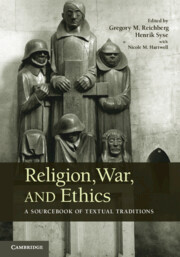Book contents
- Frontmatter
- Contents
- Notes on Contributors
- Preface
- Introduction
- 1 Judaism
- 2 Catholic Christianity
- 3 Eastern Orthodox Christianity
- 4 Protestant Christianity
- 5 Sunni Islam
- 6 Shi‘ite Islam
- 7 Hinduism
- 8 The Buddhist Traditions of South and Southeast Asia
- 9 Chinese and Korean Religious Traditions
- 10 The Religious Traditions of Japan
- 11 Sikh Tradition
- Index
- References
8 - The Buddhist Traditions of South and Southeast Asia
Published online by Cambridge University Press: 05 June 2014
- Frontmatter
- Contents
- Notes on Contributors
- Preface
- Introduction
- 1 Judaism
- 2 Catholic Christianity
- 3 Eastern Orthodox Christianity
- 4 Protestant Christianity
- 5 Sunni Islam
- 6 Shi‘ite Islam
- 7 Hinduism
- 8 The Buddhist Traditions of South and Southeast Asia
- 9 Chinese and Korean Religious Traditions
- 10 The Religious Traditions of Japan
- 11 Sikh Tradition
- Index
- References
Summary
For more than 2600 years, the Buddhasāsana (literally, the “message of the Buddha”), has been used in Theravāda Buddhist societies in South and Southeast Asia to identify what we mean by “Buddhism” as a collective representative of the accumulated doctrines, institutions, and cultural and religious heritage of Buddhists. The year 2011 has been identified as the 2600th year of sambuddhatva jayanti (from the time of the Buddha’s awakening at Buddhagaya). In Buddhism, the Buddha’s teaching itself has been treated as the teacher and leader. The three refuges (Buddha, Dhamma, and Saṅgha) function as the main tenets of the tradition. Monks, nuns, and male and female lay followers form the fourfold community that transmits the tradition.
Introduction
Buddhism is rather well known for its explicit and uncompromising pacifist foundations with regard to warfare. Nevertheless throughout history, Buddhist societies and their governments, whether willingly or by necessity of circumstance, have been directly or indirectly involved in a variety of local, national, and international wars. When Buddhist communities have been drawn or forced into warfare, their engagement in the battlefield has drawn the attention of scholars concerned with the pacifist foundations of Buddhist doctrines and its celebration of the ideals of nonviolence. For instance, several decades of ethnic conflict, religious disharmony, and a climate of war in Sri Lanka have raised concerns and serious doubts about whether Buddhists have compromised the Buddha’s teachings by failing to create a peaceful environment conducive to the healthy growth of religious communities on the island. One of the most controversial issues in recent years has been the affiliation of some Buddhist groups with organizations that have actively advocated for the use of force against the Liberation Tigers of Tamil Eelam (LTTE). Moral support has thereby been given to the Sri Lankan government’s military initiatives against the LTTE, from 2007 to 2009.
- Type
- Chapter
- Information
- Religion, War, and EthicsA Sourcebook of Textual Traditions, pp. 544 - 596Publisher: Cambridge University PressPrint publication year: 2014
References
- 1
- Cited by



